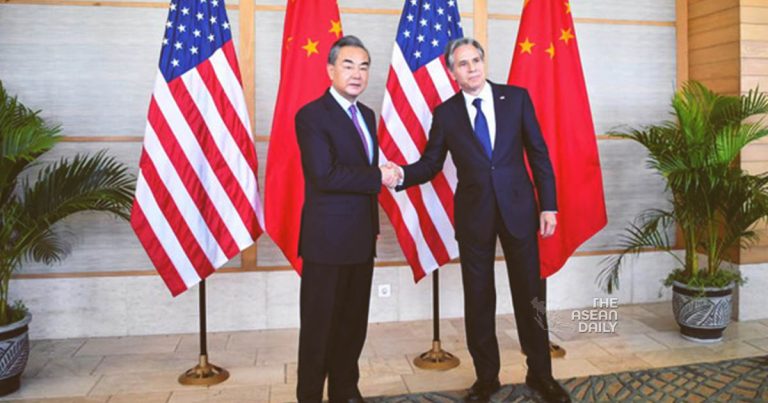13-7-2023 (JAKARTA) The top diplomats from the United States and China are set to meet for the second time in two months on Thursday in Jakarta, as they seek to manage escalating tensions sparked by alleged Chinese hacking. US Secretary of State Antony Blinken and China’s top foreign policy official, Wang Yi, will hold discussions on the sidelines of the Association of Southeast Asian Nations (ASEAN) talks taking place in the Indonesian capital.
The meeting is proceeding despite Microsoft’s recent announcement that Chinese hackers had breached US government email accounts, including those of the State Department. The talks in Jakarta come nearly a month after Blinken’s visit to Beijing, which marked the first visit by a top US diplomat in almost five years. During his visit, Blinken met with Chinese President Xi Jinping, Wang, and Foreign Minister Qin Gang.
While Qin is unable to attend the Jakarta talks due to illness, Wang, who heads the foreign affairs commission of the Chinese Communist Party’s Central Committee, is representing China. Blinken’s trip to Beijing initiated a flurry of diplomacy, with Treasury Secretary Janet Yellen visiting Beijing last week and a forthcoming trip by climate envoy John Kerry.
However, one key objective for the United States remains unfulfilled – resuming dialogue with the Chinese military, which is seen as crucial in avoiding worst-case scenarios. Tensions between the world’s two largest economies have escalated in recent years over various issues, including China’s assertiveness in the region and the stringent export restrictions imposed by the US on advanced semiconductors.
US officials are concerned about China’s alleged plans to invade Taiwan, a self-governing democracy that China claims as its own, and are keen on preserving the current status quo that has endured, albeit uneasily, for nearly five decades.
Striving for “Productive Coexistence”
Both the United States and China do not anticipate breakthroughs in the ongoing diplomacy; however, they are committed to ensuring that their disagreements do not escalate into direct conflict. Following his visit to Beijing, Blinken adopted a more optimistic tone regarding China, steering away from the Cold War rhetoric of a long-term global confrontation with the rising Asian power that was prevalent during the administration of former President Donald Trump.
Blinken recently stated during an appearance at the Council on Foreign Relations in New York, “At least in the near term, maybe even in the lifetimes of most people in this room, I don’t think there is a clear finish line” in terms of US goals in China. He emphasized the need for peaceful and potentially more productive coexistence between the two nations, as he acknowledged that both China and the US are here to stay.
However, incidents have consistently arisen, overshadowing the overall relationship. This week, Microsoft reported that a Chinese hacking group had gained access to nearly 25 organizations with the intention of espionage. While the State Department detected “anomalous activity,” it refrained from publicly attributing blame to China and stated that an investigation is underway.
Blinken’s initial plan to visit Beijing in February was canceled when Washington claimed to have detected a Chinese espionage balloon over the mainland United States.
Focus on the South China Sea and Myanmar
The South China Sea is expected to be a major topic of discussion at the ASEAN talks in Jakarta. Both the US and China will participate in an 18-nation East Asia Summit foreign ministers’ meeting on Friday, where territorial disputes in the region, particularly China’s claims, will be addressed.
The crisis in Myanmar, which has been under military rule since a coup over two years ago, will also be on the agenda. However, this issue has been a contentious one within ASEAN, with differing opinions among member nations. Thailand’s foreign minister recently disclosed that he met with Myanmar’s ousted democracy leader Aung San Suu Kyi last week, marking her first known meeting with a foreign envoy since her detention. Thailand’s engagement with the Myanmar junta has drawn criticism for potentially undermining ASEAN unity in dealing with the military rulers.




